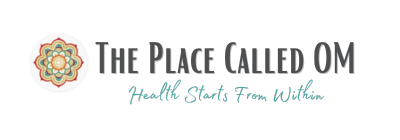
When we encounter challenging situations, it’s not uncommon for our minds to feel defeated and overwhelmed with fear. This can result in a lack of trust in ourselves and the people around us, which makes it challenging to move forward and accomplish our goals. In this blog post, we will examine the causes and symptoms of a defeated mind, learning how to trust, and relieve stress. Whether you’re struggling with self-doubt or lack confidence in others, this article will offer practical tips to assist you in regaining trust and confidence in yourself and those around you.
The Struggle is Real
“Have you ever experienced waking up feeling so exhausted from the world that you felt you couldn’t take it anymore? Did you ever wonder what you did wrong to deserve such a painful and unjust life? It’s as if everything is against you, and you’re constantly fighting a never-ending wave of problems from a vast, cruel ocean. I understand I’ve felt the same antagonistic and debilitating force.”
As a child, I was sexually assaulted, but I was too young to know what that was. I had insatiate hate towards this person and could not understand why. I was picked on once I was old enough to start school because I had a particular class, English as a Second Language (ESL). My Hispanic classmates made fun of me because I did not know English! Crazy right? So, I got into quite a few fights because of it.
Things did not start to get real for me until high school. At this time, my parent’s marriage began to go south. I was the middle eldest child since my older brother left the house at eighteen and joined the military. Since I was the eldest at home, culturally, I felt caught between my parents. Nevertheless, I was on the battlefield with absolute defeat either way. I did not feel safe at home. I was dealing with a verbally hostile father and a sobbing and defensive mother. I became outraged and exhausted in the constant state of vigilance. I used alcohol and went out into town to cope with my issues. I had no clue what to expect when I returned home. Finally, the battle ended with my parent’s divorce and my dad leaving the house. I felt lost due to the destruction of the nuclear family and the story of a happy family.
In 2003, The Army called me to serve in Iraq for fourteen months. I was excited but also scared out of my mind. It was an absolute war zone. I left that place with emotional and mental scars that I did not see.
In 2006, my beloved mother transitioned from an unexpected automotive rollover on Mother’s Day. “Oh man, when does it end?!” My little brother was critically hurt from that accident as well, and I assisted in his recovery. I felt I hit bottom with my mother passing, my little brother critically injured, my older brother still serving in Iraq, and my father out of the picture.
In 2009, I got married and thought I found peace. I would have thought that things were finally turning around. Not quite! In less than a year, my wife and I already had significant problems of insecurity. In our fourth year, we split up. It was for the best, but it was difficult as it was a failed marriage and striking my self-worth. It was not healthy.
In 2017, I got out of a horrible, manipulative, toxic relationship, and the beautiful soul of my dog passed away from Ehrlichia about the same time. Really? When does it stop?! These are all actual events that occurred in my life, and I felt utterly hopeless. I realized that post-traumatic stress (PTS) and post-traumatic stress disorder (PTSD) are real. I needed to learn how to trust again and relieve the stress I was experiencing.
What sets PTS apart from PTSD?
PTS is a standard, regular, and often adaptive response to experiencing a traumatic or stressful event. Almost everyone who participates in a scary situation will show a few signs of post-traumatic stress. That’s because our brains are hard-wired to tell our bodies to tense our muscles, breathe faster, and pump more blood under intense pressure. This is the “fight-or-flight” response. Our body prepares to deal with a threat or challenge by pumping more blood and oxygen to our muscles, and it shuts down non-critical functions like digestion. This fight-or-flight response is considered a normal reaction and not a mental illness.
What is stress?
In simple terms, stress is a feeling people have when they are overloaded and struggling to cope with demands. These demands can be related to finances, work, relationships, and other situations, but anything that poses an actual or perceived challenge or threat to a person’s well-being can cause stress.
According to the annual stress survey by the American Psychological Association (APA), average stress levels in the United States (U.S.) rose from 4.9 to 5.1 on a scale from 1 to 10 in 2015. The main reasons given are employment and money.
Stress can be a motivator. It can be essential to survival. The “fight-or-flight” mechanism can tell us when and how to respond to danger. However, if this mechanism is triggered too quickly, or when there are too many stressors at one time, it can undermine a person’s mental and physical health and become harmful.
The body produces larger quantities of the chemicals cortisol, adrenaline, and noradrenaline. These trigger an increased heart rate, heightened muscle preparedness, sweating, and alertness. All these factors improve the ability to respond to a hazardous or challenging situation. Your mental health is so important and affects your daily life. Extreme stress is not conducive to our health.
Five Ways to Improve Stress Relief
When stressed, I made several lifestyle changes to optimize my mental, emotional, and physical health.
- Balanced Diet and Nutrition – Healing starts from within. A diet rich in antioxidants, omega-3 fatty acids, and other stress-reducing nutrients supports your body’s ability to cope with stress. Embrace a balanced diet that includes a variety of whole foods to nourish your body and soul. Changing my diet to a healthy, balanced diet with organic meats, fats, fruits, vegetables, and non-gluten grains was crucial for boosting the immune system. I completely stopped the intake of alcohol and limited caffeine to reduce adverse reactions to the central nervous system.
- Tai Chi and Qi Gong – These gentle exercises are powerful and healing. The slow, deliberate movements of Tai Chi and Qi Gong promote relaxation, reduce stress, and improve overall health by enhancing Qi flow throughout the body. An increase in exercise also improved the mental and physical state. Prioritizing my time was vital in organizing my life.
- Meditation and Mindfulness – Embrace the stillness. Meditation and mindfulness practices guide you to a calm state, helping to quiet the mind and reduce the physiological impacts of stress. Spend a few minutes each day in meditation and witness the transformation. Most importantly, set aside some time each day for self-care. Starting or ending my day with salt baths slows the nervous system and aids in relaxation. Self-reflection on any situation affected me; I practiced mentally stepping back from any position and being more of an observer than reacting to the problem.
- Acupuncture for Balance – “We are so powerful that we create our illness,” likewise, we can restore Balance. Acupuncture, a cornerstone of Oriental medicine, is a profound way to reduce stress by unblocking energy (Qi) flow and harmonizing the body’s vital energies. This step takes time but is very effective when dealing with difficult situations and not getting caught up in the story.
- Herbal Remedies – Herbs are nature’s medicine. Incorporating herbal remedies into your routine can be a powerful ally in your stress management arsenal, from chamomile’s calming properties to ginseng’s balancing effects.
As you can see, I made several lifestyle changes to improve my mental health when stressed. I changed my diet to a healthy one without gluten, stopped consuming alcohol and reduced caffeine, increased exercise, prioritized personal time, and practiced self-care. I also practiced self-reflection and observed situations instead of reacting to them. This final step takes time but is effective in dealing with difficult situations. I hope reading some of my healthy journey is helpful and inspires you to pursue your physical and mental health to better learn how to trust and relieve stress.
Did you enjoy this article? Leave us a comment below!

